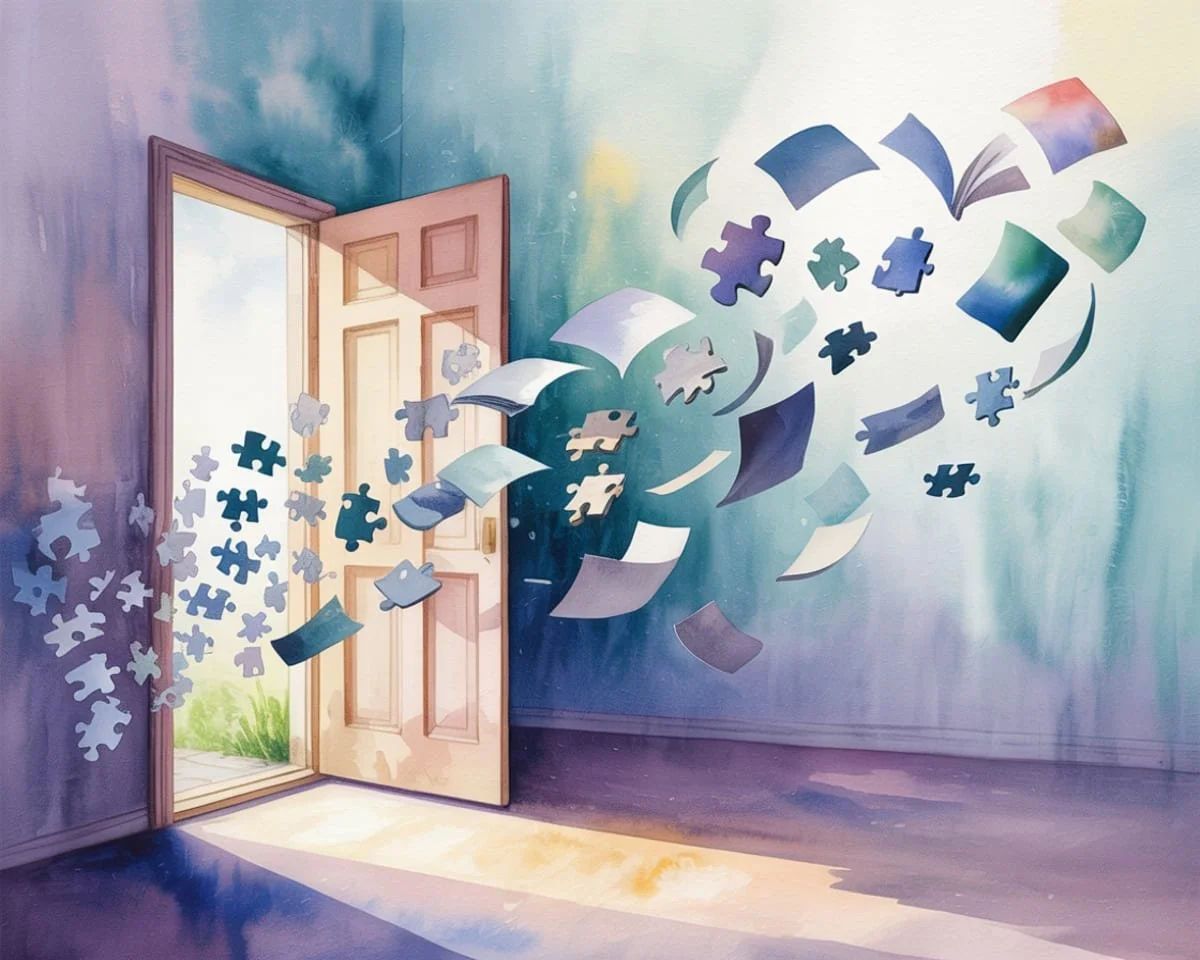How to AI
For the past few years, I’ve been orbiting the world of AI. I’ve written about it, built around it, and followed it closely enough that its changes feel personal. It’s something I genuinely enjoy, an intersection of curiosity and creation. And like many others, I’ve welcomed small ripples of it into my daily life.
I’ve used chatbots to brainstorm, summarize, rewrite, organize. Each use quietly functional. A little faster here, a little smoother there. But always within the realm of the familiar. AI was helping me do what I already knew how to do. That made sense. That felt safe.
But it also felt… flat.
Faster didn’t necessarily mean better. Just quicker variations of an already known thing. And after a while, I noticed I wasn’t learning much. I was just moving through tasks more efficiently. The shape of the work stayed the same.
Something shifted recently though. Without deciding to, I began using AI in a different way. Not to accelerate what I already understood, but to attempt something unfamiliar. A kind of quiet boundary was crossed. I started using it for things I didn’t know how to do. Things I avoided because I felt unqualified. Or incapable. Or simply unsure.
That openness surprised me.
At first, it was a technical observation. I have access to a tool that knows much more than I do. So why not use it? But the real question became emotional. Why hadn’t I used it this way before?
It wasn’t about function. It was about fear.
There’s a particular discomfort in not knowing how to do something. Not just the not-knowing, but all that surrounds it. Feeling exposed, unqualified, behind. Even when no one is watching, there can be embarrassment. The subtle pull to return to what is known can be strong.
What made the difference now?
I think it was a mix of things. Some practical. Some personal. Over lunch recently, a friend reflected something to me I hadn’t fully named. That to do something unfamiliar requires humility. A softening of ego. A willingness to not have all the answers, or any answers. It requires emotional capacity. Not just time, but energy. Space inside.
For me, there was also a kind of remembering. I started a company at 20. I had no idea how to build an organization, raise money, hire people. Everything I did, I was doing for the first time. There was a lot I got wrong. And back then, that felt okay. The pressure to be polished hadn’t taken hold yet. Mistakes were expected. Even welcomed.
I think I had unlearned that along the way with success. Grown accustomed to the illusion and identity of competence. The safety of operating inside a box labeled “things I’m good at.” It’s a soft trap. Comfort masquerading as ease. After all, doing what I’m good at feels good. It’s stable, predictable, efficient. But over time, it can also be numbing.
I’ve noticed how rarely I give myself permission to try something I don’t know how to do. Not because the stakes are high. Often, they’re not. But because the fear of failing, of not being good, tugs quietly at the edges. So I stay inside the frame. Efficient. Capable. Stuck.
But here’s what I’ve been discovering.
When I use AI to try something I don’t know how to do—not to polish, but to explore—I find myself feeling something I didn’t expect: satisfaction. Even when it doesn’t work. Especially when it doesn’t work. Because when it doesn’t work, I try again. I ask a different question. I take a screenshot. I probe. I iterate. I learn.
I don’t see these early failures as failures. They’re just part of the process. Like trying a new piece in a puzzle without knowing where it fits. There’s no shame in getting it wrong. There’s only information.
And because AI doesn’t judge. Because it’s patient, immediate and available, it makes the process easier. Not less challenging, but less personal. I can be clumsy without consequence. That feels rare. And spacious.
None of this is really about AI. It could be a person. A book. A blank page.
It’s about something else. Choosing to try to do something I don’t know how to do. To experiment before expertise. To do before knowing how. To allow myself to be not good and to do it anyway. That’s not a technical capability. That’s emotional permission.
And I’ve realized how deeply satisfying that is.
Not because it’s productive or efficient. Not because it leads to something useful. But simply because it expands something inside. A reminder that I am not fixed. That I can try. That I can learn. That I can grow.
And that is how I learned to AI.




